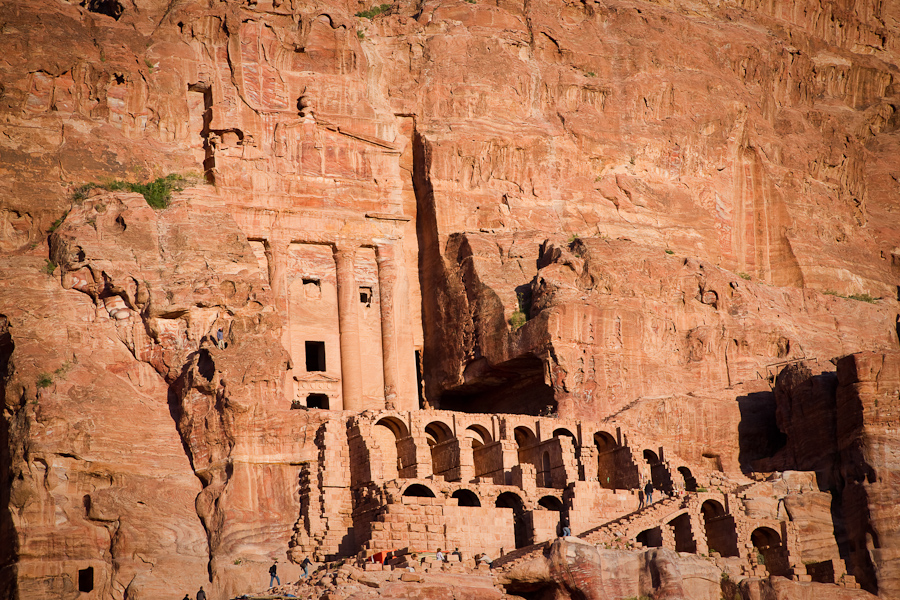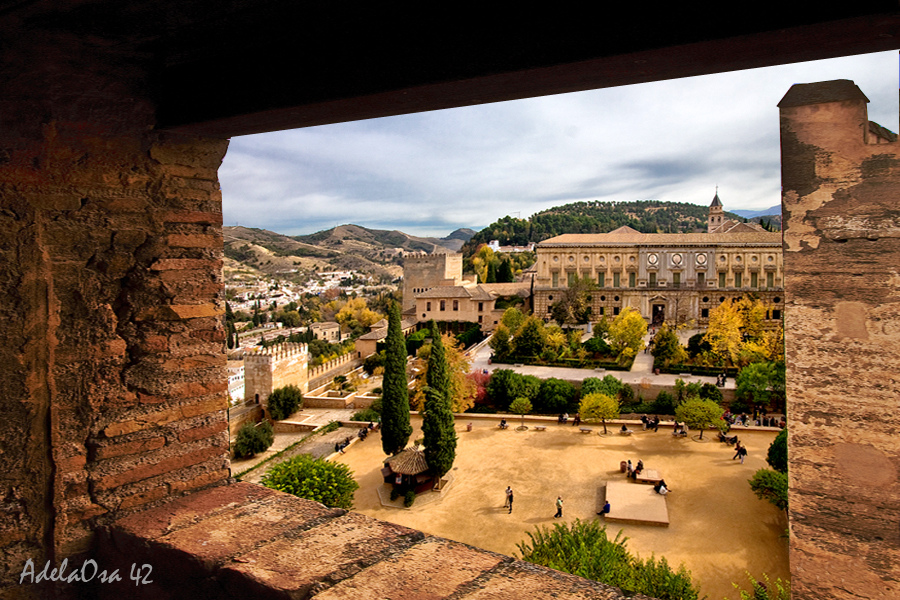By Islam El Shazly
There has been lots of talk recently in Egypt about tourism, now that the Islamists have come to power in the parliament. Are they going to ban tourism? What’s to become of the 5 million people employed in the industry? What about the alcohol and the gambling and the bikinis?
As with everything in life there are etiquettes to travel and tourism within Islam, these etiquettes are there not to govern or dictate the way we should enjoy ourselves, but rather to temper it. Away from home and being among strangers gives a false sense of freedom to people, and makes them do things that they would otherwise never think of doing in their homeland; non-smokers become smokers, non-drinkers might indulge in a beer or two, and even if they make a different country their own, they are likely to take on jobs that they would normally sneer at home, like driving a taxi.
The main concept in Islam is that everything is HALAL (permitted) unless there is solid proof that it is HARAM (forbidden).
Since Adam and Eve set their feet on earth and we have been in constant motion, the curiosity within us led us to always be on the move, to discover new lands, greener pastures, far away wonders, and to trade in all sort of things. In fact travel is encouraged in Islam; it is a means of contemplation, learning, and earning livelihood.
Within Islam, everything has a higher purpose, and it is this refinement that makes a difference for Muslims in their daily lives, from the moment they wake up till the moment they go back to bed they can gain a higher level of spirituality. Travelling as an activity is no different.
The etiquettes of travel for Muslims are meant to give them the greatest benefit materially and spiritually while travelling, be it for business, pleasure, or a pilgrimage.
However, looking closely at these guidelines, and opening a guidebook you can find lots of similarities, they are not unheard of and they are not meant as a deterrent to roaming the earth and sampling its wonders.
The following guidelines are from the book Journey in Islam by Dr. Abdul Hakim Abdul Latif Al-Saeedy.
General Guidelines.
- Seeking the Pleasure of Allah: When travelling one has to have the proper intention; and nothing is better than seeking the pleasure of your creator by turning the act of sightseeing into an act of worship.
- Sincerity: An integral part of seeking the pleasure of Allah is being sincere in your intention and your action. It is also required in all manners of interaction with people all over the world.
- Deriving Support from Allah: Nations and people all over the world have their traditions, rituals and prayers to help them in their daily lives, just as ancient mariners prayed for their deities or saints for help and good luck while sailing the seas, modern mariners smash a champagne bottle on the hull of a new ship for prosperity. Muslims are no different, only they ask for Allah’s assistance in their travels, they ask for spiritual support and for success in the trip, whether it was for business or pleasure. They also ask for good company while on their journey.
- Last Will and Testament: Sounds very ominous, however, this is exactly what a lot of insurance companies offer now, travel insurance in the case of death or injury. Muslims, on the other hand are encouraged to have their will written before the travel, stating their financials in it and whether or not they owe or somebody else owes them money. This way these rights and obligations don’t get forgotten in case of death or injury.
- Appointing a Guardian: When travelling for business, particularly when travelling for long periods of time, it becomes a good idea to appoint a trustworthy guardian to care for your interests and your family while you are away.
- Hiring a Guide: One of the best things anyone can do while travelling is hire a good local guide; especially if it is their first ever visit to a place. They know the ropes of their city, and they can definitely make a trip less stressful.
- Looking at things with Calm and Prudence: A traveller has to be balanced in their travels, in his sightseeing, and his actions. They can’t – and shouldn’t – imitate everything they see, and they can’t – and shouldn’t – be fascinated by all the thoughts and beliefs without proper contemplation.
- Show Good Morals: Muslims carry Islam with them wherever they go; it is not just in their acts of worship, but also in the way they carry themselves and most importantly, in their morals. They should act accordingly, be humble and moderate in their walk and talk as well as lower their gaze and voice.
- Tourism and Disobedience do not need to Mix: Disobedience is not to be confused with mistakes, everyone makes mistakes, disobedience, however, is intentional. Once it comes into the mix all benefits go out the window.
- Do Good for those who need it: Chivalry and helping those in need is an integral part of the Muslim character, it is embedded in the teachings of the Quran and Sunnah, and helping people in need, wherever we are in the world, regardless of their colour, creed, or gender comes with the territory.
Fail to Plan. Plan to Fail.
Planning and preparing for a trip is essential – regardless of your religion or gender – it can be the difference between having a great experience or a miserable one. Sometimes failure to plan can even lead to death.
- How much will it cost and what will I need: Each trip is different from the next, and each country is different from the next, having enough money for a trip depends on your knowledge of the region you are visiting. The amount of money needed to visit the UK, for example, is not the same as the amount needed to visit Egypt. Same goes for attire, warm clothing or light clothing, tickets, whether you will need a visa or not. All of the above is necessary when planning a trip; otherwise, chances are things will always go wrong.
- How about their Culture: A simple hand gesture in Egypt can be an insult in Italy. Table manners, what to do when you enter someone’s home, learning about the traditions and customs of a country is very important, not only will it make for a smooth visit, but it is guaranteed to enrich your overall travel experience. Even learning how to say ‘thank you’ in the native tongue can go a long way in leaving a good impression.
- Health issues: This is perhaps the most important part of preparing for a trip. Learning about health issues that might arise during the journey, will they need special travel vaccination, will the trip have several different modes of transportation that might cause motion sickness, any special medication that must be readily available.
Travelling in itself is not forbidden in Islam, the majority of the most famous explorers were Muslims, like Ibn Battuta and Ibn Fadlan just to name two, it’s what happens during the journey itself is what that might cause a specific trip to be unacceptable, and as Al-Imam Al-Shafei said:
تغرب عن الأوطان في طلب العلى … وسافر ففي الأسفار خمس فوائد
تفريج هم واكتساب معيشةٍ … وعلمٍ وآدابٍ وصحبة ماجد
Leave your country in search of loftiness
And travel! For in travel there are five benefits,
Relief of adversity and earning of livelihood
And knowledge and etiquettes and noble companionship
• • • • •
Globe:










I am glad that this article helped, sorry for the late response 🙂
I am so glad I came across this article on the internet. I am Muslim and I also love to travel and explore the world. The article provides very useful information on how I can see Allah’s beautiful world and creation in an acceptable way.
Wa iyak… you are very welcome my friend
Thank you so much,jaskallah hayir inshallah i was looking for such guidence in matters of travel